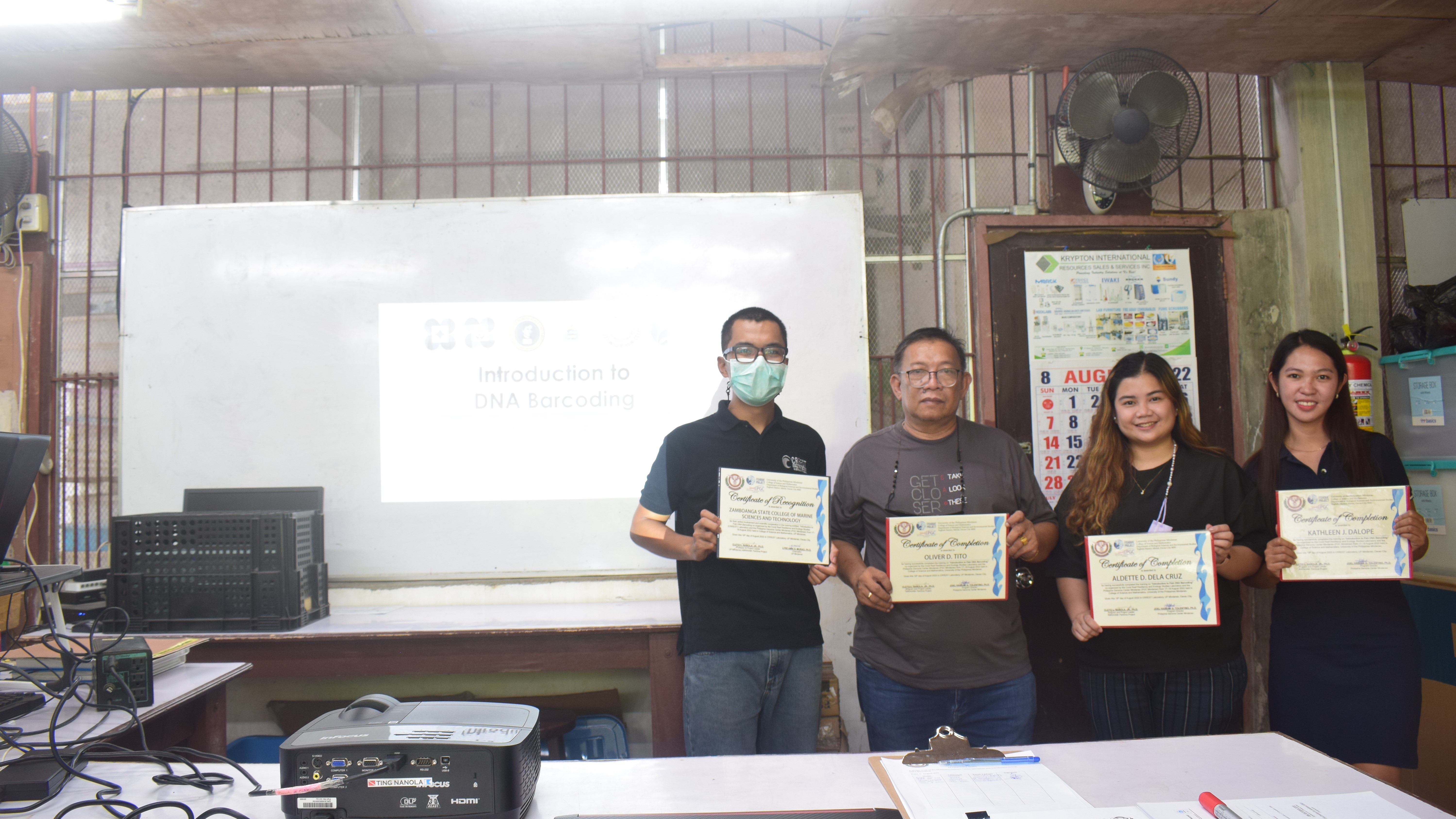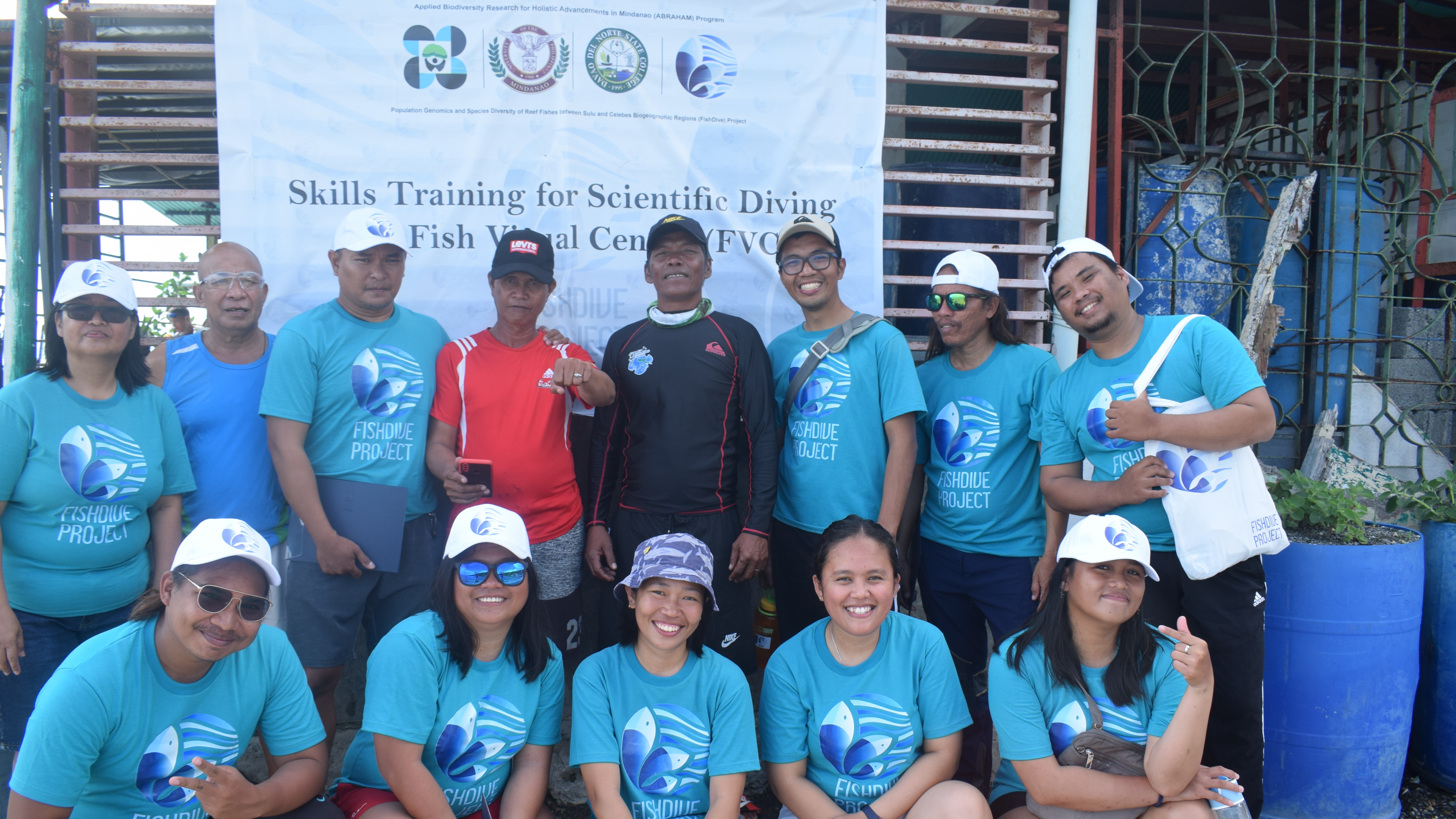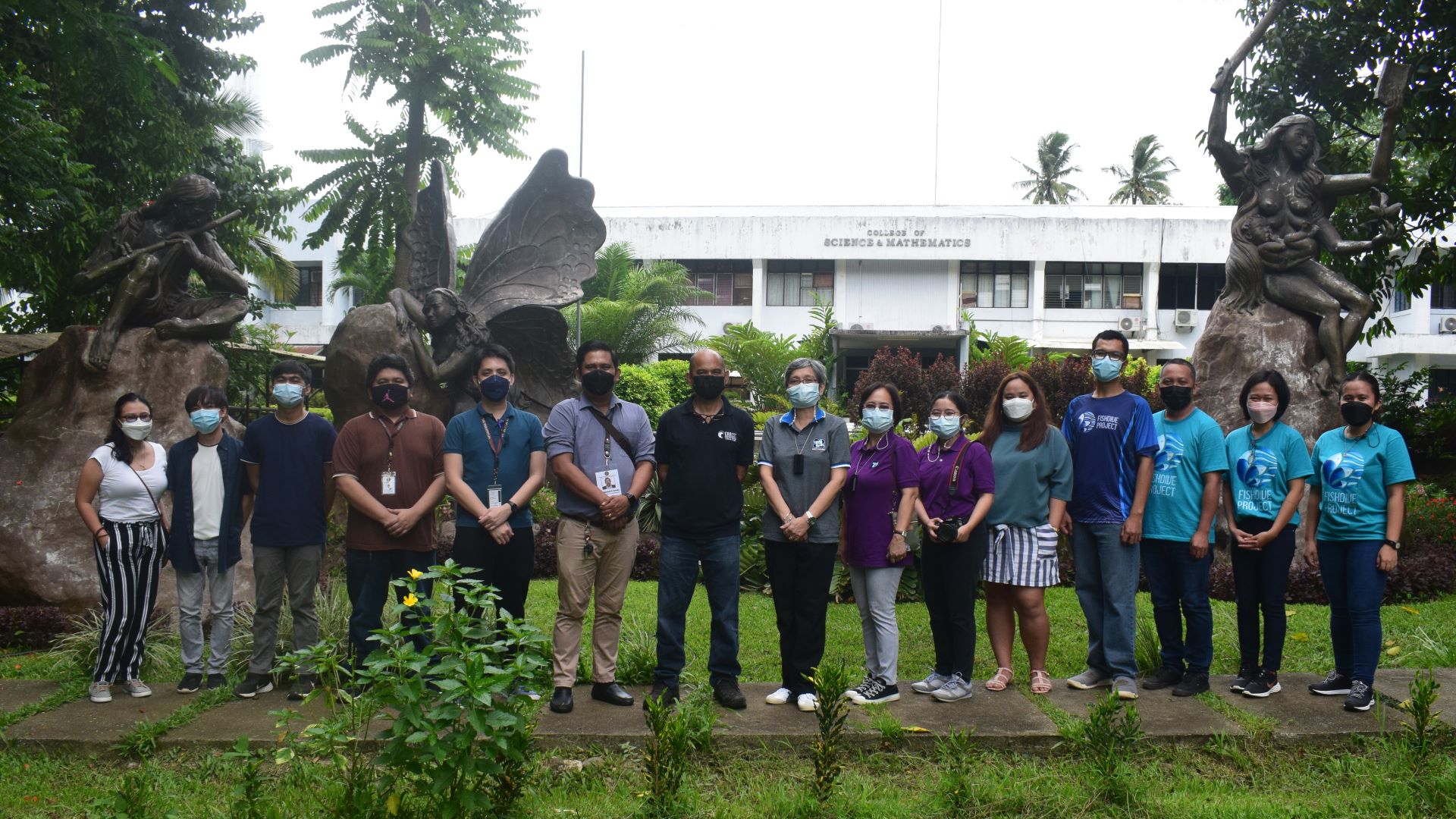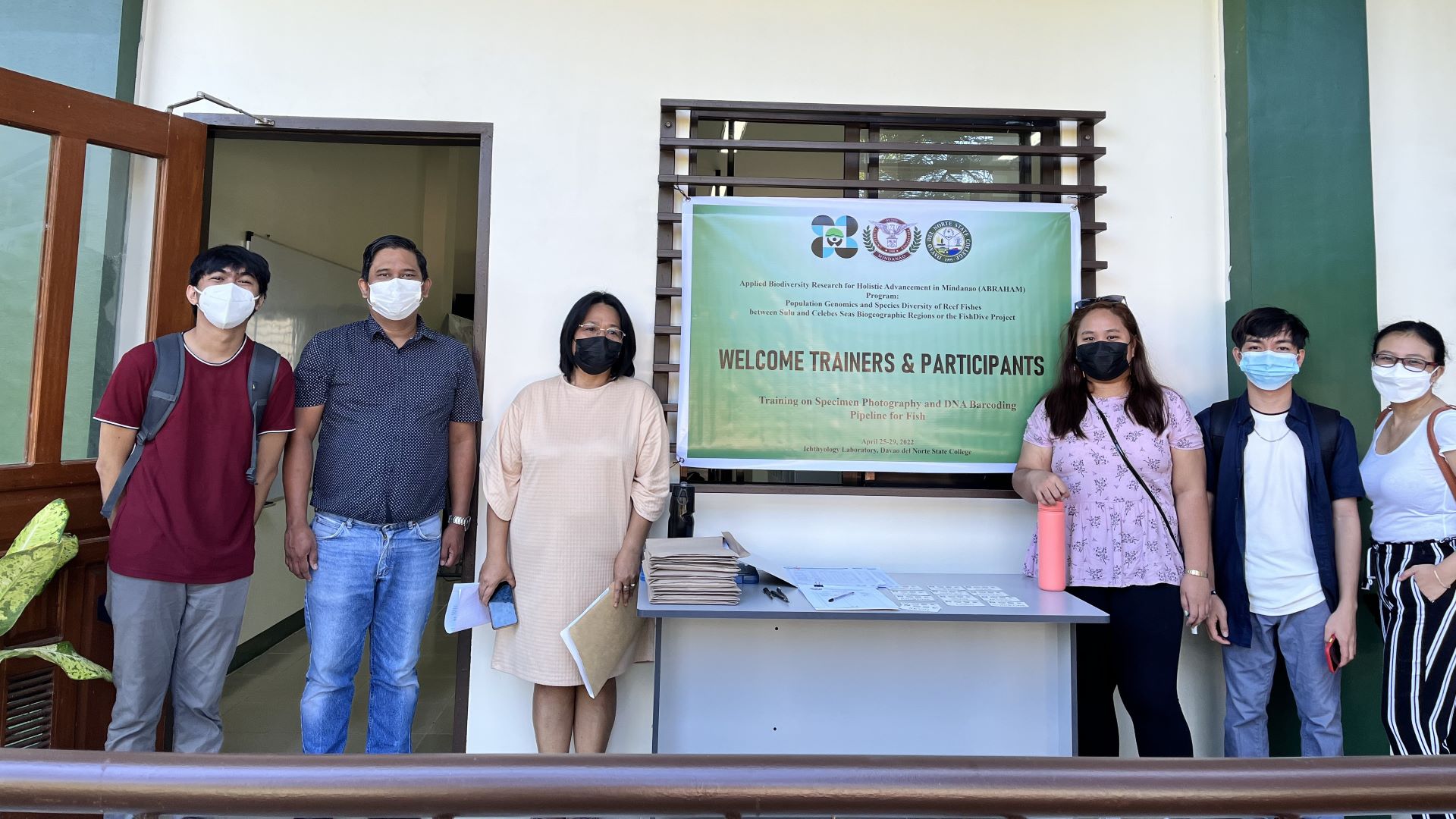
JRMSU, ZSCMST completes three-day training on Fish DNA Barcoding
Written by Maybelle A. Fortaleza
Uploaded on Aug. 19, 2022
Faculty members from Jose Rizal Memorial State University (JRMSU) and Zamboanga State College of Marine Sciences and Technology (ZSCMST) completed their three-day training on Fish DNA Barcoding last 19 August 2022. The activity aims to provide benchmarking on the DNA barcoding pipeline — covering concepts and applications to actual laboratory work. The three-day training was led by Mr. Kevin Labrador, University Researcher of the FishDive Project and assisted by Mr. Christian Labrador and Ms. April Mae Numeron of the Philippine Genome Center Mindanao. The participants also had the opportunity to view the facilities of PGC Min.
We thank our training participants, Dr. Oliver Tito, Ms. Kathleen Dalope, and Ms. Aldette Dela Cruz of ZSCMST and Dr. Junnasir Sakilan and Dr. Jhoan Rhea Pizon of JRMSU, for their hard work and willingness to conduct more training and capacity building activities in their respective institutions. UP Mindanao and ZSCMST will also enter into a Memorandum of Understanding for scientific cooperation through the ABRAHAM FishDive Project.



